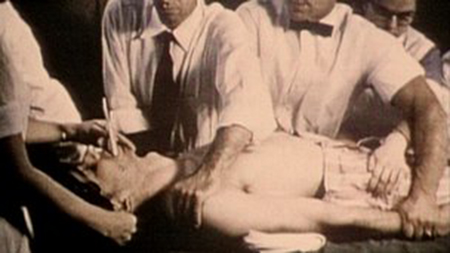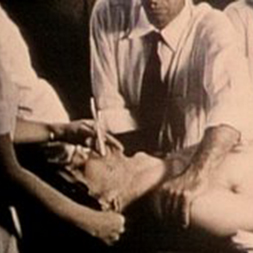John Read is Professor of Clinical Psychology in the University of Liverpool’s Institute of Psychology Health and Society
A psychologist at the University of Liverpool has refuted claims made in a new study that Electroconvulsive therapy (ECT) works because it reduces connectivity in the brain.
Professor John Read said: “My first issue with this new study is that it is a sample of just nine people and secondly it is hard to discover how a treatment works when there is no evidence that it does work.
Taken us backward by 80 years
“It has taken us backwards by 80 years when it was openly acknowledged that what ECT actually does is reduce brain function. The Aberdeen research team has not discovered how ECT helps people; it has simply added to the long list of detrimental effects of electrocuting the human brain.
“In a review of the efficacy of ECT in 2010, which I undertook with Professor Richard Bentall, we could not identify a single study demonstrating any benefit beyond the end of the treatment period compared to placebo.
“It is perhaps unsurprising that passing 130 volts through brain cells designed to use tiny fractions of one volt should cause brain damage. It seems odd to have one branch of medicine working on better ways to prevent and treat seizures while another is intentionally causing them.
“This seemingly bizarre situation came about, in the 1930s, because it was genuinely believed that there was a ‘biological antagonism’ between epilepsy and schizophrenia. This led to people with epilepsy being injected with the blood of ‘schizophrenics’ while psychiatrists sought ways to cause grand mal seizures in ‘schizophrenics’.
Viewed as unethical
“The other theory at the time was that mentally ill patients had either too much brain activity or too many traumatic memories and that ECT ‘worked’ precisely because it lowered cognitive function and eradicated memories. Intentionally causing brain dysfunction has since become viewed as unethical by most doctors.”
To watch Professor Read’s interview on BBC’s Newsnight, click here (from 18mins 35secs): http://www.bbc.co.uk/iplayer/episode/b037myg1/Newsnight_24_07_2013/
Professor Read latest review of ECT research is available in the latest edition of his book `Models of Madness’.

